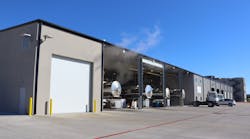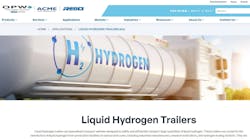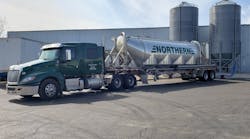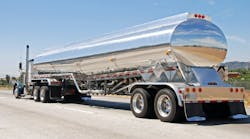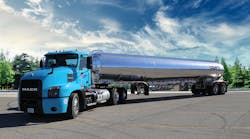American Trucking Associations officials criticized the Obama administration for proposing a budget that not only fails to recognize the realities of freight and passenger transportation, but offers nothing in the way of long-term stability for transportation funding. ATA officials made their comments on March 4.
“Today’s proposed budget misses the mark when it comes to the transportation needs of the US economy,” said ATA President Bill Graves. “It provides no real funding solutions for the long-term health of our infrastructure and proposes massive new subsidies for a mode (railroad) that moves a small proportion of America’s freight and passengers.”
Freight railroads moved 14.7% of all domestic freight according to the latest statistics, which pales compared to the 68.5% moved by America’s trucking industry.
“While freight railroads and intermodal rail play small, but important roles in goods movement, the lifeblood of our economy is and will continue to be the US trucking industry,” Graves said. “By mid-January, this industry moved as much freight as the railroads will move all year, and this budget proposes to re-direct funds from road and bridge projects that would improve capacity and ease bottlenecks to underwrite projects for an industry that continually crows about how self-sufficient it is.
“It is also difficult to understand this administration’s insistence on continuing to pour billions of dollars into an intercity passenger rail system that carries just one-tenth of one percent of passenger miles, while failing to provide the necessary resources to improve the safety and efficiency of the highway system, which handles 87% of passenger travel.”
ATA Chairman Phil Byrd, president of Bulldog Hiway Express, added: “Finding a long-term, sustainable way to improve our nation’s roads and bridges is one of ATA’s top priorities. Using the proceeds from corporate tax reform, while creative, does little to address the long-term solvency of the Highway Trust Fund or to uphold the principle of users paying for the services they get, in this case, the federal fuel tax, which has not been adjusted in more than two decades to account for inflation and improvements in vehicle fuel efficiency. The fuel tax is, and will continue to be the most efficient and fair way of collecting revenue for highways and bridges and should be adjusted to reflect current economic conditions and needs.”
